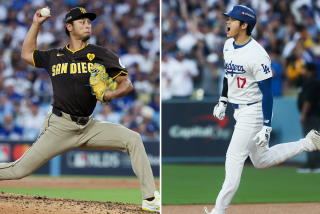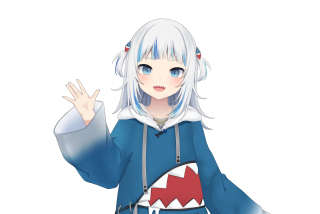Angels, Dodgers see Yu Darvish slip away
Clay Daniel remembers the first time he saw Yu Darvish in person. It was at a 2002 tryout on an island off the coast of Japan, when the lanky right-hander, who signed a six-year, $60-million deal with the Texas Rangers on Wednesday, was only 16.
“He was a fungo bat, about 6 feet 4 and 160 pounds, and he was only throwing 85-88 mph,” said Daniel, then the Angels’ international scouting director. “He was still a baby, but you could tell he had a chance to be something special.”
Dodgers special advisor Tom Lasorda had a similar reaction when he saw Darvish in the 2004 Koshien National High School Baseball Championships as a senior in 2004.
“I fell in love with him,” Lasorda said. “Wow, he had a great arm. I would have signed him on the spot.”
Both came away from those early Darvish dabblings feeling jilted, like a kid looking through a store display window at a shiny toy he couldn’t have.
Daniel saw Darvish pitch about a dozen times as an amateur, and he told the pitcher’s family the Angels were willing to offer a lucrative bonus to lure him to the United States.
But in Japan, it is considered an affront to the nation for a star high school player to bypass the professional leagues there and go directly to the U.S., so Daniel’s recruiting pitch fell on deaf ears.
“It would have taken millions of dollars, an astronomical amount, to get him then,” said Daniel, now a major league scout for the Arizona Diamondbacks. “But his father wasn’t going to have any of that.”
Lasorda went so far as to invite Darvish and his father, Farsad, who is of Iranian descent, and his mother, Ikuyo, who is Japanese, to his hotel suite, an invitation that was accepted. But he knew the odds of convincing the pitcher to sign were “about a 100 to 1.”
“He had a little bit of a thought about coming over, but he wanted to stay,” Lasorda said. “Those teams over there, if they want that kid, they will not let him leave the country.”
The Dodgers had been scouting Darvish since he was 15.
“There’s this misconception that we start learning about players when they’re ready to come to the U.S.,” said Acey Kohrogi, the team’s director of Asian operations. “Actually, we’ve already known about them for a long time.”
Now, of course, everyone knows about Darvish, who went on to star for the Hokkaido Nippon Ham Fighters and is being touted as the best Japanese pitcher to come to the U.S.
The Rangers paid Nippon $51.7 million for the right to negotiate with Darvish, and with Wednesday’s deal, they have invested $111.7 million in the 25-year-old with a wide array of off-speed pitches to go with his 95-mph fastball.
The Angels, who play the Rangers 18 or 19 times a year, will have to contend with an ace right-hander who could neutralize their predominantly right-handed-hitting lineup.
“He had the stuff, and his feel for the strike zone was pretty special,” Daniel said. “He made his mark in Japan. Now he has a chance to make his mark here.”
twitter.com/MikeDiGiovanna
Staff writer Dylan Hernandez contributed to this story.
More to Read
Go beyond the scoreboard
Get the latest on L.A.'s teams in the daily Sports Report newsletter.
You may occasionally receive promotional content from the Los Angeles Times.











